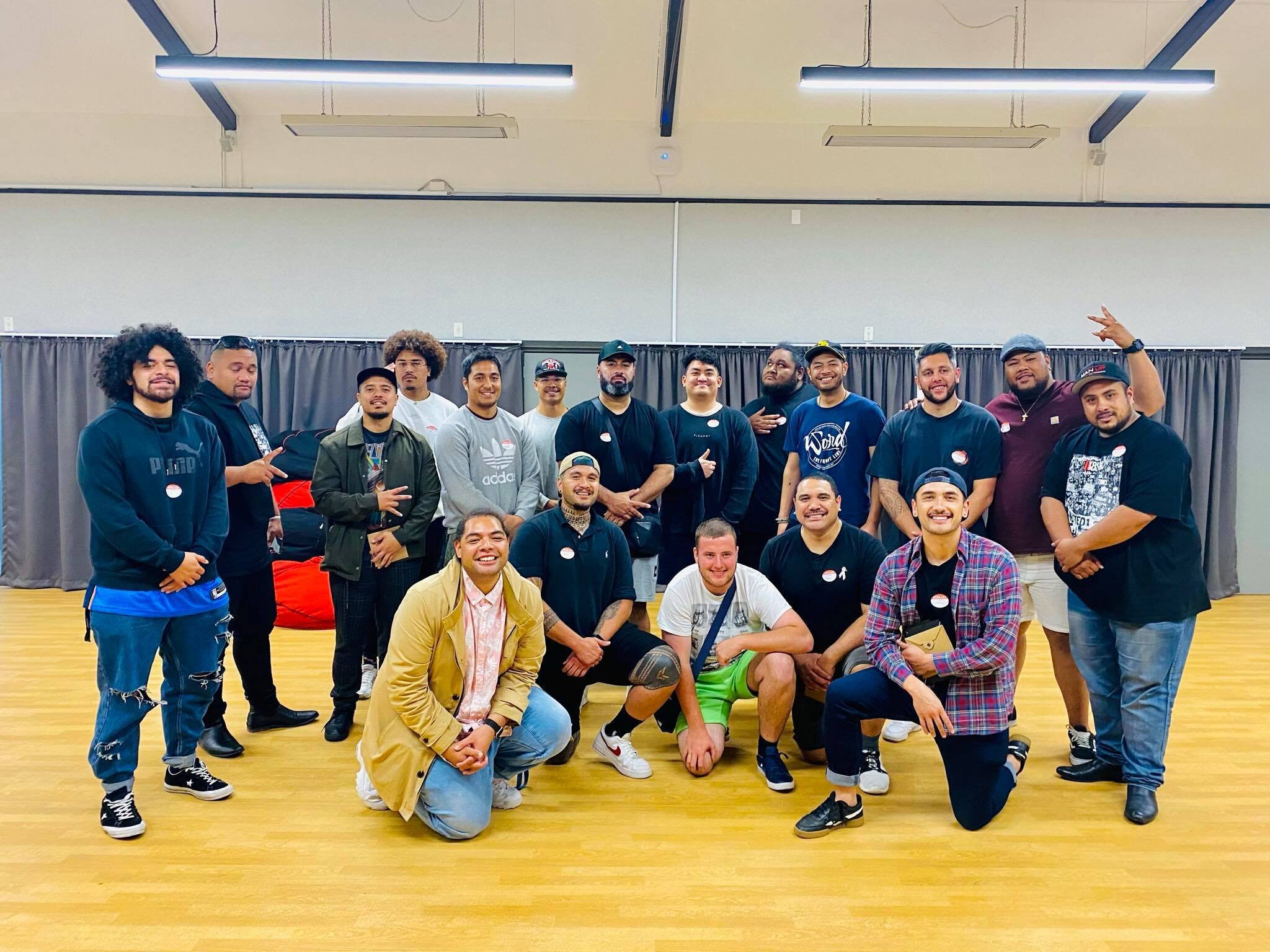Mens Talanoa
Talanoa is a pan-pacific term used to encompass the sacredness of storytelling. It’s meaning changes slightly from place to place among people from the Moana, however its intent is to welcome conversation, to welcome connection and to build empathy amongst a collective when addressing challenging topics and important decisions.
This started as a grassroots project. It started in the homes of young women who felt hungry for connection. We resonated not only culturally with the concept of ‘talanoa’ but also with the sacredness of space. Space that not only valued what was being said, but also what wasn’t. Space that valued home, family, belonging, space that saw you as an extension of a village that was vast and nuanced. Although we were able to understand the concept of ‘talanoa’ with our own personal lived experiences, it was important for us to lay out the fala outside of our homes for a much-needed communal space.
We saw a gap, and that gap rang true for our Māori and Pāsifika community, where we were not only invisible in a system that did very little for us, but we were also struggling to be visible with one another. When contentious conversations were raised, we saw the diaspora of our community spread and split and cross-generationally continue to isolate from one another. We wanted to have those conversations, we wanted to be safe when addressing controversial topics, we wanted the lens of these topics to take into account our Pāsifika views, but also acknowledge the nuances amongst us all.
Although talanoa is a concept many Pāsifika people use and practice, we also knew that talanoa was a concept that Māori could connect with as well. We wanted to make sure they were welcomed into the space because even though they may have a different word or meaning for the sharing of stories, the experience of community, space, respect, love and connection was something that we as people of the moana can all relate to and feel home in. As we grow, we want to make sure Tangata Whenua feel welcomed into this space as the people of this land but most importantly as a people who are natural born orators, similar to their wider whānau in the pacific.
This was the birthing process of ‘Talanoa Sessions’.
In November, we hosted a talanoa sessions for men in collaboration with HEART alongside ‘white ribbon day’. It was important for us to choose topics that were relatable and needed but also supported the conversation around violence in our communities, in particular how it affects women and our children. From there the topics grew into; toxic masculinity, inter-generational trauma, societal expectations of men and using violence as a means for discipline and love.
We had four amazing facilitators who held those spaces for our men. Their role was to support people while they unpack, unravel, share, and learn what those topics looked like in their lives, while also being free to share their own experiences. Our facilitators were Peter Mata, Benji Timu, Isoa Kavakimotu, Astley Nathan, and Tyrone Tangata-Makiri. We also had the incredible Zech Soakai present as a participant as well as our guest speaker for the night. He spoke about his experience as a teacher and shared with the room one of his poems, which was written about the aftermath of an incident that occurred in South Auckland that incited a lot of conversations within our Māori and Pāsifika community around inter-school violence. This was a moving moment for the room, and it sparked a Q+A between Zech and the other men in the room around his experiences around supporting rangatahi, ways he approaches tough conversations with the young people he works with, and ways to move forward with the many conversations that was happening that night.
We had about 35-40 men in attendance throughout the night with kai provided. We had a range of different ages, which is really important when addressing issues like intergenerational trauma, etc. The feedback of this talanoa sessions was positive, but like anything we were also provided alternative ways by our participants with what we can do better for next time and we also encourage that because it’s important that anything for the community, moves with the community.
This talanoa space provides a pathway of healing for our men, who often struggle to navigate these conversations because of societal expectations but also because of the notion that our men cannot share their feelings for it takes away from who they are. We hope for future talanoa sessions for men to continue unraveling and challenging this notion that ‘real men don’t cry’ or ‘real men shouldn’t speak about their feelings’. If we can’t navigate the talanoa around issues that may be affecting our community, how are to navigate the solutions and encourage the healing that must occur from it.
Talanoa sessions was not created to ‘fix issues’, it was created to support people in ways they can have courageous conversations. Talanoa is about storytelling, and for people who do storytelling so well, this is a way we can make sense of our who we are, what we are, and where we need to go.
Anatola Finau

